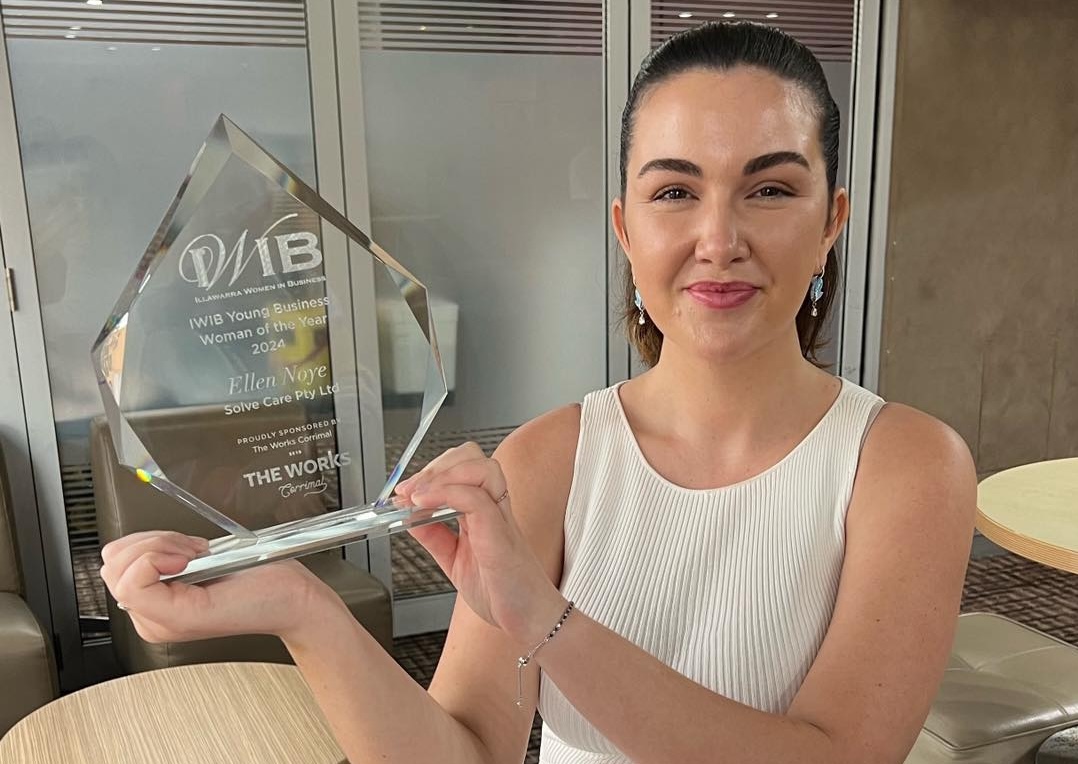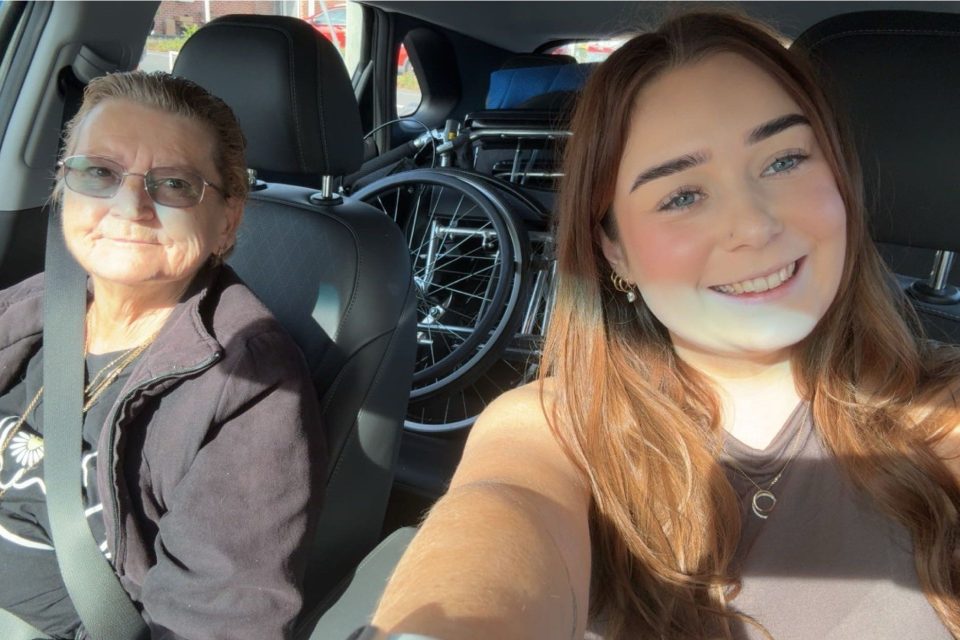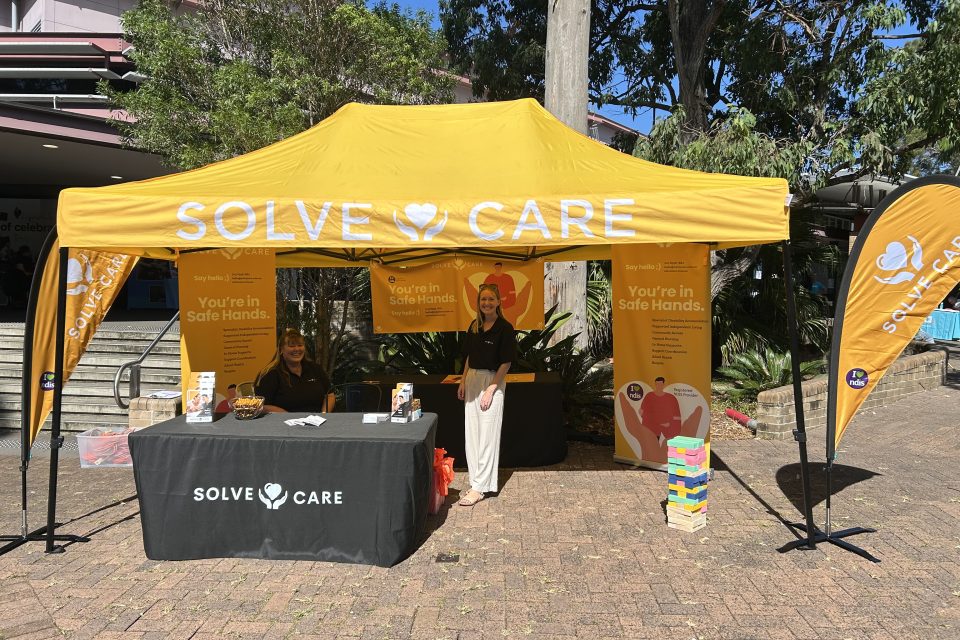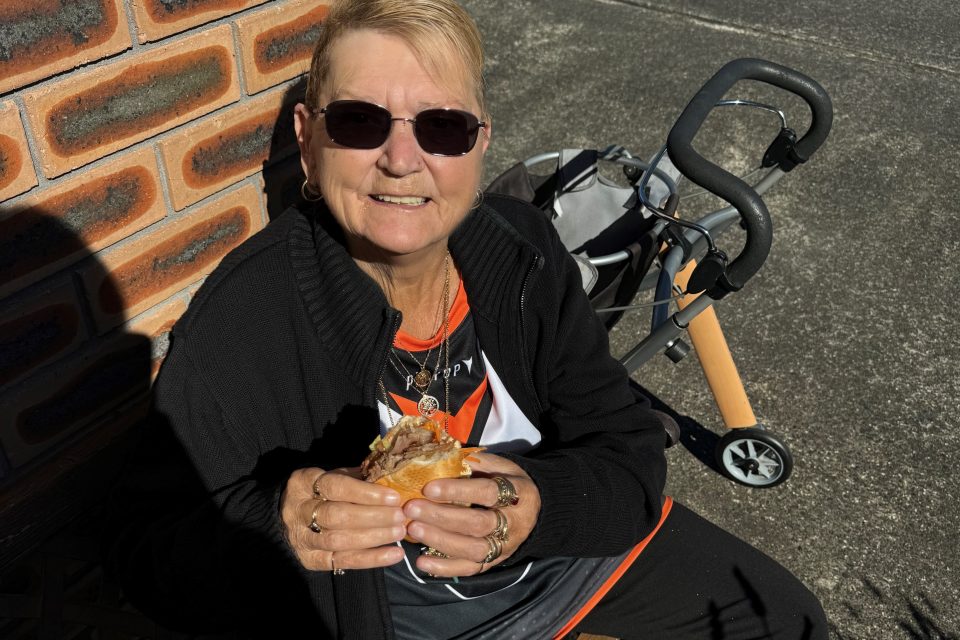
Solve Care founder Ellen Noye was last year named Young Business Woman of the Year at the Illawarra Women In Business Awards. Photo: Solve Care.
Disability support work was not part of the plan for Ellen Noye, but vindication comes daily through the results, growth and stories of her business Solve Care.
“Once, a client called us. She had noticed disability care workers turning up day after day at a neighbour’s door, knocking and, when there was no answer, leaving. She asked if we could do a welfare check,” Ellen says.
“We did and it turned out that person was deaf and couldn’t hear when his carers knocked. He had diabetes and was pretty catastrophically unwell at that point.
“As sad and sobering as that story is, it happens, especially to people who don’t have families. With nobody to advocate for their health, they’re at significant risk. Luckily this man lived near a Solve Care client who sounded the alarm.”
The Solve Care narrative is littered with anecdotes of people looking out for each other. But to understand their significance, you have to go back to when Ellen was studying to become a registered nurse (RN).
Disability support work was not part of the plan then.
In 2020 at the height of COVID, Ellen was working in a Wollongong cafe to support herself through her degree. But when mandatory placements would come around demanding full-time hours of unpaid labour, she had to pivot to pay the rent.
Disability support work offered the flexible hours she needed and the chance to apply the skills she was learning. It was her first insight into what would eventually lead to the creation of Solve Care.
The National Disability Insurance Scheme (NDIS) was legislated in 2013 but seven years later the disability sector was still finding its feet in this brave new world.
Ellen cared for people with all kinds of disability and witnessed how easily they could fall through the cracks.
“One patient had lapsed into unconsciousness in the hospital. Another was going through a psychotic break and tried to stab me,” she says.
“The most upsetting thing was it was clear they weren’t being cared for properly. They truly needed more assistance than they were getting, but the staff had not been prepared to enter into those kinds of situations.
“A lack of training and regulation seemed to be a theme across the industry. You could be a hairdresser and get into disability care, no questions asked. When I spoke to my friends about it, they floated the idea that I start my own business, one where I could realise my ideals.”



Ellen says despite the clinical needs among a high percentage of people with disability, the majority of support workers in the sector have no clinical training, and in medically trained circles, disability care isn’t generally a frontrunner as a career path.
But it should be, she says, and that’s the nucleus of Solve Care.
“Not understanding the need for clinical training in this sector is contributing to high hospital admissions.
“Helping people live a healthy life in their own homes shouldn’t be out of the norm – it should be expected they can receive quality care in their own community and not have to resort to emergency rooms all the time.
“Community aid can be a key factor in reducing the burden on our hospitals and we should be working to demonstrate to RNs that the community sector is a great sector for them. You get more autonomy and can greatly impact the health sector as a whole.”
Solve Care was founded in 2021, one of five per cent of businesses currently NDIS registered.
Today, the organisation has about 40 people servicing the Illawarra. Slowly expanding, it focusses on providing clients clinically informed care in clinics and homes across the region.
Professional development and training for its staff is central to its approach. Registered nurses can learn to provide higher-intensity support; additional training models aid staff in medical administration and a wide variety of online training allows staff to upskill and plug gaps in their knowledge as they go. Support workers can also move into managerial roles as part of the company’s career pathways.
This all helps to reduce what Ellen says is one of the biggest deterrents for support workers – isolation.
“Solve Care staff can contact their supervisors, pop into the office for assistance, we offer psychological support services three times a year and a 24/7 service for urgent enquiries,” Ellen says.
“We have extensive training, policies and procedures in place, but recognise that this work can be very isolating.
“Our staff and clients understand what makes Solve Care different – an understanding there is great power in the collective. People who have people are always better off.”
For more information contact Solve Care.


















